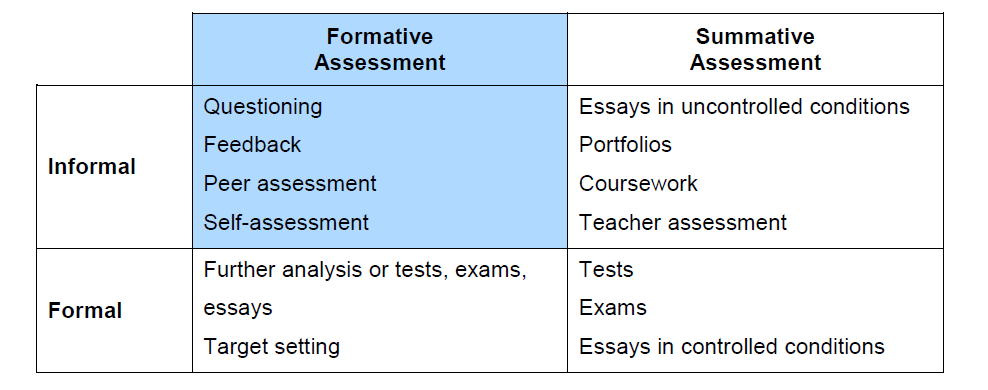ASSESSMENT FOR LEARNING
Assessment for learning (AFL) is an approach to teaching and learning that creates feedback which is then used to improve students’ performance. Students become more involved in the learning process and from this gain confidence in what they are expected to learn and to what standard.
One way of thinking about AFL is that it aims to ‘close the gap’ between a learner’s current situation and where they want to be in their learning and achievement. Skilled teachers plan tasks which help learners to do this.
AFL involves students becoming more active in their learning and starting to ‘think like a teacher’. They think more actively about where they are now, where they are going and how to get there.


Effective teachers integrate AFL in their lessons as a natural part of what they do, choosing how much or how little to use the method. AFL can be adapted to suit the age and ability of the learners involved.
AFL strategies are directly linked to improvements in student performance in summative tests and examinations. Research shows that these strategies particularly help low-achieving students to enhance their learning.
AFL and the relationship with formative and summative assessment
Traditionally, AFL has been closely associated with formative assessment because practices such as questioning and providing feedback help ‘form’ or ‘shape’ student learning. This differs from summative assessment which typically is an attempt to measure student attainment at the end of a period of learning.
The following table, based on the UK’s National Foundation for Educational Research report (NFER 2007), classifies types of formative and summative assessment as either formal or informal.

It can be argued that all of the assessment strategies in this table support AFL if their ultimate use is to help the student progress in terms of their learning.
A good example of using a summative assessment strategy in an AFL context is where a test or exam is used to identify a lack of understanding (e.g. in a particular area of the syllabus) and subsequently targets are set to rectify this.
